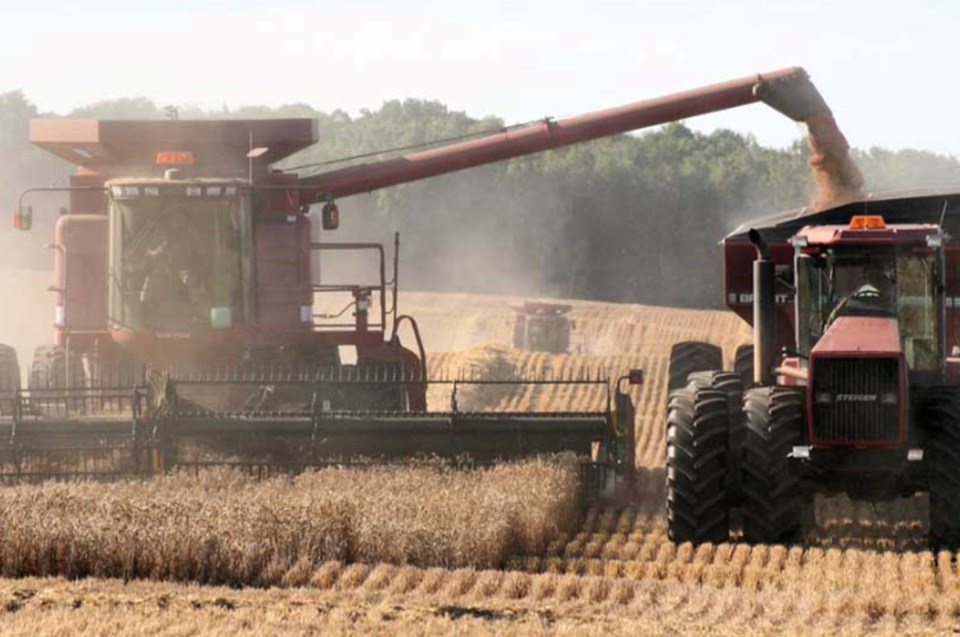Municipal policies that encourage higher-density developments in urban areas are important factors in arresting the continuing loss of farmland in Ontario, according to an agriculture advocacy organization.
At its meeting on March 9, Grey County council received a delegation from Dianne Booker and Joanne Hughes of the Grey County Federation of Agriculture as well as Ontario Federation of Agriculture executive member Paul Vickers.
During the presentation, Vickers encouraged members of county council to think about increasing density in urban areas to address housing needs. Vickers noted that 319 acres of farmland are lost in Ontario every day.
“We need that land. As a farmer, land is what you hang on to. Land is what grows everything,” he said. “That’s why it’s so important we try to use our land as efficiently as possible.”
Vickers encouraged local municipalities to consider policies that encourage developers to “build in and up.”
“I’d love to see five-storey buildings,” he said.
Vickers said farmland is being lost for a variety of reasons including: housing, hydro corridors, industrial parks and even to bigger agricultural buildings on farm properties. He noted that new highway 413 will result in a lot of agricultural land being lost. Vickers, a former member of Meaford council, said it’s up to local leaders to make tough decisions. He acknowledged that taller buildings and more urban density could be unpopular concepts.
“It’s hard to bring density and intensity, people don’t seem to want it, but one-acre lots for single homes is not the answer,” he said. “We have enough land inside our urban areas right now we don’t need to do sprawl out into the greenfields. Just do your best.”
Vickers said slowing the loss of agricultural land from 319 acres a day to 250 acres “would be a win.”
The Blue Mountains Deputy Mayor Peter Bordignon thanked Vickers for making the OFA’s views on density better known. Bordignon said municipal leaders often hear “farmers don’t want that” when considering higher density proposals or policies.
“What you said is very refreshing. It’s nice to see the OFA behind that,” he said.
Bordignon suggested the OFA make those views known at the local level when there are opportunities to comment on higher-density ideas.
Owen Sound Deputy Mayor Scott Greig pointed out that the value of land in high-growth areas made it difficult to protect productive agricultural lands.
“We can’t blame the generational farmer sitting on a gold mine of wealth,” said Greig. “It’s hard to place blame on the farmer for wanting a fair return like anybody else would.”
Vickers acknowledged that was an issue and said that’s why policies to “slow down the sprawl” are important.
“It’s those kinds of decisions that are the hard ones to make,” he said.



